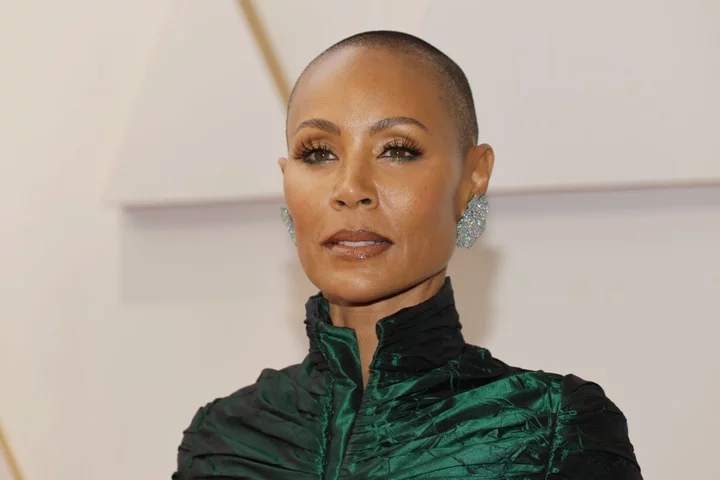
‘It was terrifying’: All the things Jada Smith Pinkett has said about her alopecia
Viewers of Sunday evening’s Oscars ceremony were astonished to watch Will Smith strike comedian Chris Rock after he made a joke at the expense of his wife, Jada Pinkett Smith. Rock was presenting the award for Best Documentary when he made a joke about Pinkett Smith’s appearance. “Jada, I love you. GI Jane 2, can’t wait to see you,” he quipped in an apparent reference to the actor’s shaved head. The Red Table Talk host, who has spoken candidly about her hair loss from alopecia in the past, was seen rolling her eyes at the comment. Will then walked onstage and struck the comedian, yelling “keep my wife’s name out your f***ing mouth”. The 50-year-old actor first revealed that she had alopecia in 2018, describing the sudden hair loss she experienced as “terrifying”. Speaking to her mother Adrienne and daughter Willow on an episode of Red Table Talk, the actress recalled losing “handfuls of hair” in the shower one day. She then explained how her condition prompted her to cut all her hair off. “I’ve been getting lots of questions about why I’ve been wearing this turban,” she said. “Well, I’ve been having issues with hair loss. “And I’ll tell you it was terrifying when it first started. I was in the shower one day and then just handfuls of hair, just in my hands, and I was like ‘oh my God am I going bald?’ “It was one of those times in my life when I was literally shaking with fear.” The Girls Trip star added that maintaining a sense of perspective has helped her cope. “People are out here with cancer, with sick children… I watch the higher power take things every day and if the higher power wants to take my hair? That’s it? God, you want my hair? “When I looked at it from that perspective it did settle me.” She went on to credit turbans for helping her feel empowered as a result of her hair loss. “When my hair is wrapped, I feel like a queen,” she said. In July 2021, fans praised Pinkett Smith after she debuted a new buzz cut, saying it was “time to let go” after her struggle with hair loss. The actor posted about the new style on her own Instagram, where she uploaded a short video of herself posing against a backdrop of flowers and revealed that her daughter had been the one to encourage her to cut off her hair. “Willow made me do it because it was time to let go BUT … my 50s are bout to be Divinely lit with this shed,” the 49-year-old captioned the video. And in December, the Matrix Resurrections actor shared a video to Instagram during which she pointed out a line on her scalp that had developed as a consequence of the condition. “Now at this point, I can only laugh,” she said at the start of the video. “Y’all know I’ve been struggling with alopecia and just all of a sudden one day, look at this line right here. Look at that,” she said. “So it just showed up like that and this is going to be a little bit more difficult for me to hide.” “So I thought I’d just share it so y’all are not asking any questions,” Pinkett Smith added. She joked: “But you know mama’s going to put some rhinestones in there. I’m going to make me a little crown,” she said. “That’s what mama’s going to do.” Pinkett Smith previously revealed that the cause of her own alopecia had not been identified by doctors, but that she believed it may be stress-related. According to the NHS, hair loss, known medically as alopecia, is fairly common. It's estimated that around 40 per cent of women aged 70 years or over experience female-pattern baldness – the most common type of hair loss, which is thought to be inherited. Hair loss can be genetic, or as a result of extreme stress, a medical condition or treatment. It's also common for women to lose more hair than usual up to three months after they've given birth. Read More ‘It was terrifying’: All the things Jada Smith Pinkett has said about her alopecia Will Smith issues ‘official statement’ on Jada Pinkett Smith marriage Will Smith releases bizarre ‘official statement’ video after marriage revelation Will Smith speaks to crowd about relationship with Jada Pinkett Smith Jada Pinkett Smith built ‘love nest’ for her and Will Smith to spend alone time Jada Pinkett Smith reveals why she and Will Smith never signed a prenup
2023-10-31 05:56

Saudi Loosens Airport Regulation in $100 Billion Investment Push
Saudi Arabia plans to open its domestic aviation industry to more competition, part of an overhaul that the
2023-10-30 20:18

Scientists say we’ve all been using sunscreen wrong in new skin cancer warning
Most people do not apply enough sunscreen or wear adequate clothing when out in the sun for too long, according to a new study that warned that the product may be giving them “a false sense of security”. The research, published recently in the journal Cancers, sheds more light on the observation that melanoma and skin cancer rates are rising globally despite a rise in sunscreen usage – an oddity termed the “sunscreen paradox”. “The problem is that people use sunscreen as a ‘permission slip’ to tan. People think they are protected from skin cancer because they are using a product marketed to prevent a condition,” study co-author Ivan Litvinov from McGill University in Canada said. In the research, scientists found that Canadians living in provinces with incidence rates for melanoma – one of the most aggressive forms of skin cancer – were more likely to report using sun protection, more aware of the health risks of sun exposure, and more apt to follow the UV index. Overall, scientists assessed data from 22 focus groups encompassing 95 Atlantic Canada residents. The analysis found that despite reporting more awareness and intent for protection from the sun, people in these provinces received more sun exposure due to warmer temperatures and a tendency to engage in outdoor activities. In another assessment of people in the UK, they found contradicting evidence that sunscreen use was surprisingly linked to an over two-fold risk of developing skin cancer. “These combined findings suggest a sunscreen paradox, whereby individuals with higher levels of sun exposure also tend to use more but not an adequate quantity of sunscreen or other sun-protection measures, providing a false sense of security,” Dr Litvinov explained. Scientists call for new interventions, considering this sunscreen paradox, to address knowledge gaps in sun protection and skin cancer prevention. “Sunscreen is important, but it is also the least effective way to protect your skin when compared to sun protective clothing, rash guards, and sun avoidance. People can and should enjoy the outdoors, but without getting a sunburn or a suntan,” Dr Litvinov added. Read More If being without your phone fills you with dread, you could have nomophobia When do the clocks go back in the UK this year? Nursery places and wraparound childcare plans announced
2023-10-30 13:48

How This Israel-Hamas Conflict Is Like Nothing That’s Happened Before
The long history of the Israeli-Palestinian conflict is filled with bloodshed, dislocation and trauma. But even by those
2023-10-29 15:26

Watch While You Can: Everything Leaving Netflix in November 2023
Every month, Netflix adds lots of new content to its library of films and TV
2023-10-29 00:59

Chipotle Bets Diners on Ozempic Want Its ‘Wholesome’ Food
Chipotle Mexican Grill Inc. is anticipating that people using appetite-suppressing drugs for weight loss will go for its
2023-10-27 22:45

The three-year cruise is running late -- again
Life at Sea's three-year cruise is still struggling to get afloat, with a new departure date rumored to be November 30. Passengers have been told not to book travel until they receive further updates.
2023-10-27 17:49
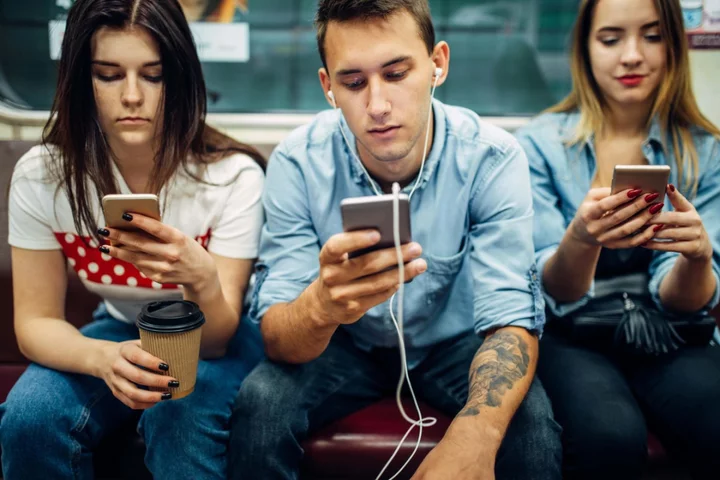
If being without your phone fills you with dread, you could have nomophobia
If you’re filled with terror at the prospect of being without your phone, you’re not alone. A new poll has found that 42% of British adults identify with ‘nomophobia’ – the fear of being stuck without mobile phone connectivity. According to psychologist Dr Linda Papadopoulos, nomophobia is firstly about “dependency”, and secondly about “slight catastrophising”. She said: “The key to having a healthier relationship with your phone is implementing values, boundaries and being self-aware when it comes to how we use our phones.” Of the 2,000 people surveyed by Sky Mobile, 23% said they would rather hold a tarantula, 14% said they would prefer to go swimming with sharks, and 15% said sleeping in a haunted house would be better than being without 5G for an entire week. According to the research, on average British people use their phone for 14 hours per week. Here’s what you need to know about phone addiction – and how it might be impacting our wellbeing… How can we spot the signs of nomophobia or phone addiction? According to Papadopoulos, it’s quite simple. “If you’re engaging and constantly checking to see where your phone is or if you’ve missed a call, [and are] worried, anxious about the possibility of missing out” – whether this is a social event or something work-related – you could have nomophobia, Papadopoulos suggested. “We’re at our most peaceful when we feel like we have control over something.” She encourages you to think about the first thing you look for when you wake up or walk out the door – if it’s your phone, it could be a sign of nomophobia. “There’s also this thing where we think our phone is vibrating, and it’s not. That’s another sign too.” Has social media made it worse? It’s important to understand what our phones are to us. “They’re no longer just phones, right? They are these digital prostheses, which we use to do everything from learn to work to connect,” said Papadopoulos. “In the case of things like social media, we know that a big part of our desire to be on those apps is around that sense of not just belonging – which obviously they were originally intended for – but also that sense of missing out. “So I think anything that you do, which relates to who you are, your expectations around your work, your personal life, are all going to feed into this.” How might it be impacting our wellbeing? “It all depends on what we are doing with our phones. If I’m sitting down doom scrolling, of course it will affect how I’m feeling. That’s not great,” she suggested. “You want to own your technology instead of your technology owning you. Don’t catastrophise your mobile phones, because there are other things you can do to remain connected and it can lead to technology separation anxiety – the disproportionate sense of fear of being without your technology. “When you are talking about any sort of addiction, if it gets in the way of your day-to-day life, you start having disproportionate reactions, struggle to engage with people in real life, your sleeping pattern is non-existent or not eating your dinner, those are the sorts of things you should look out for when it comes to nomophobia. “For example, if a 12-year-old girl is posting a bunch of things on social media and sitting at her phone waiting for likes, that would be a sign of her phone affecting her mental health.” But there are also positives to mobile phones, Papadopoulos adds. “I live really far away from my family. Sometimes I even cook with my mum, even though she lives in Cyprus,” she said. How can we start to address it if we think we have a problem? “Do basic things like keeping your phone in the same place to avoid using brain power constantly looking for where it is,” Papadopoulos advised. “And don’t vilify or deify your mobile phone. It’s neither the best thing in your life or the worst. This will help you start to get a sense of control over those anxious thoughts.” If you’re concerned that your behaviour might be addictive, see your GP for help. For more information on how to switch to Sky Mobile visit https://www.sky.com/shop/mobile. Read More Nursery places and wraparound childcare plans announced Is scalp exfoliation the key to healthier hair? Why do some people love horror movies? TikTok influencers warn about ‘potent’ steroid cream risks among black women – dermatologist explains the risks House of the Year 2023 shortlist revealed by Royal Institute of British Architects Fatima Whitbread supporting new fostering campaign, as research finds ‘misconceptions put people off’
2023-10-27 16:46
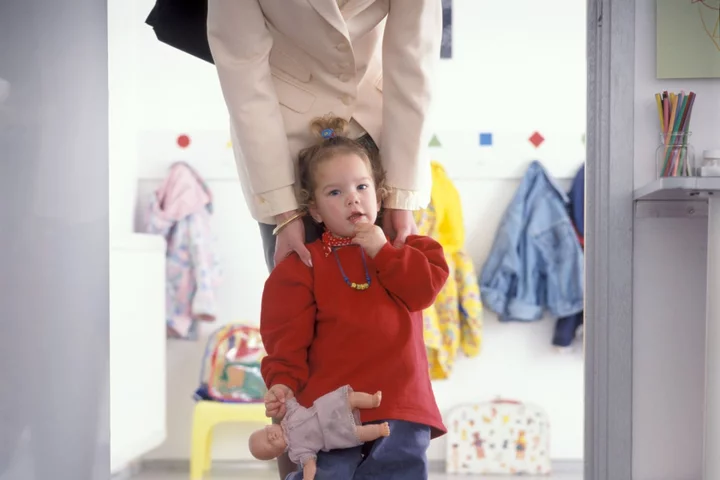
Nursery places and wraparound childcare plans announced
Parents can go online to find out what childcare they are eligible for under plans which will see nurseries expanded to provide more places and funding given to councils for wraparound care. Further details of the previously-announced reforms to allow some families of children as young as nine months to claim 30 hours of free childcare a week – set out by Chancellor Jeremy Hunt in the March Budget – have been announced. The Department for Education said parents in England can visit an eligibility checker online to see what they are entitled to, depending on their earnings and their child’s age. The Government said £100 million is being made available for nursery and early years places, with funding intended to support childcare settings to increase their physical space, which the department said is anticipated to add thousands of new places across the country. Following Mr Hunt’s target for all schools to be able to offer care either side of the school day by September 2026, local authorities will also now be getting details of how much of the £289 million wraparound fund they will receive – based on “anticipated need”. Early years leaders had previously expressed concerns that nurseries and childminders could struggle to deliver additional places for younger children from next year if the funding provided by the Government does not meet rising costs. The offer of free childcare for working parents will be available to those with two-year-olds from April 2024, covering around half a million parents, but it will initially be limited to 15 hours. From September 2024, the 15-hour offer will be extended to children from nine months, helping a total of nearly a million parents, and the full 30-hour offer to all under-fives will come in from September 2025. This is the largest investment in childcare in our history, so I encourage people with young children or those thinking about starting a family to visit the Childcare Choices website to find out what they’re eligible for Education Secretary Gillian Keegan Education Secretary Gillian Keegan said: “No-one should have to choose between having a career and having a family, so I’m determined that every parent who wants it should have access to the childcare they need. “Flexibility is at the heart of our plans to transform childcare for families, whether it’s offering quality childcare out of school hours or making sure there are more early years places where they’re needed most. “This is the largest investment in childcare in our history, so I encourage people with young children or those thinking about starting a family to visit the Childcare Choices website to find out what they’re eligible for.” Paul Whiteman, general secretary of school leaders’ union NAHT, said that far more investment is needed. “Unfortunately, the money behind this expansion is a fraction of what is required. Our members are also questioning where they will find the additional staff,” he said. “There is a real danger that the Government’s promises could fall short in reality if they don’t urgently look again at the funding and resources.” Helen Hayes, Labour’s shadow children and early years minister, added: “Without more details about whether this is new money, how many places it will provide and how new childcare will be staffed this pledge isn’t worth the paper it’s written on. “The Conservatives have overseen a dramatic fall in the number of childcare providers and places – they simply cannot be trusted to deliver the change in childcare that families need and deserve.” The department also said the childminder start-up grant scheme will open for applications by the end of November. The grant – £600 for those who register with Ofsted and £1,200 for those who register with a childminder agency – is aimed at boosting the numbers of childminders working to offer parents more flexible childcare. Work and Pensions Secretary Mel Stride said: “Boosting employment is key to growing our economy, and the extra money provided for parents on Universal Credit will give them the flexibility and security they need to find a job, support their children and reap the benefits of work. “I encourage every parent to access this resource to see what help is available and to talk to one of the thousands of Work Coaches in our Jobcentres who are there to help them find work or enhance their skills.” Parents can visit childcarechoices.gov.uk to use the eligibility checker. Read More Is scalp exfoliation the key to healthier hair? Why do some people love horror movies? TikTok influencers warn about ‘potent’ steroid cream risks among black women – dermatologist explains the risks House of the Year 2023 shortlist revealed by Royal Institute of British Architects Fatima Whitbread supporting new fostering campaign, as research finds ‘misconceptions put people off’ 5 key coat trends to complete your autumn/winter wardrobe
2023-10-27 15:45

Air France-KLM Posts Profit Jump Led by Strong Summer Demand
Air France-KLM reported a surge in third-quarter profit driven by strong summer demand, although passenger volumes fell just
2023-10-27 14:21
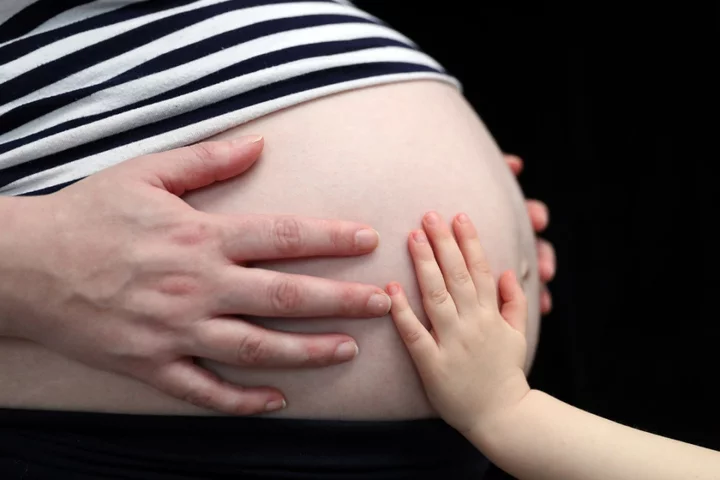
Your forties is the perfect decade to have your first child – I’m living my best life
Seven years ago, I was at my local antenatal class preparing for the birth of my firstborn. In my forties and armed with a coloured birthing ball, I looked around and gasped. All the other soon-to-be-mums were at least a decade younger than me. Some were nearly half my age. It briefly panicked me. Would I make any friends? Why did I leave it so late to have kids? Was I doing something wrong? In hindsight, though, I had no reason to worry: your forties is absolutely the best decade in which to have your first child. According to data published last week in The Daily Telegraph, the number of women becoming first-time mothers in their forties has increased in recent years: today, one in 25 UK births is to a woman aged 40-plus. That’s a lot of women just like me, despite the fact that getting pregnant over 35 gets you labelled as someone of “advanced maternal age”. That might sound harsh until you remember that older pregnancies used to be termed “geriatric” – thank God that’s been phased out. I’ve never regretted waiting until my forties, even if I had been trying for children for years by that point. My story is undeniably unique: my partner Alex took his own life while we were doing IVF, but that didn’t stop me from continuing to try to get pregnant. The maternal call was strong, so I decided to carry on with the process using Alex’s frozen sperm. Today I have two beautiful daughters with him: Lola, seven, and Liberty, five. It is an understatement to say I was ready for a baby at 40. I was grounded. Confident. Unlike when I was in my twenties or thirties, I knew exactly who I was and what made me tick. I had life experience. I no longer got FOMO. I didn’t even drink, having been through hell and back to become sober 20 years earlier. My career was fully off the ground, and therapy had helped me identify the family dysfunction I knew to ditch for the sake of my kids. I also wasn’t worried about my body bouncing back after the birth. I just desperately wanted to be a mum. Of course, there are all sorts of advantages to having children in your twenties and thirties. A huge bonus is that you’re simply more fertile. According to research, 31 is the magic age to have a baby – you’re still as fertile as in your twenties, but you also have more money. I’m sure motherhood in your fifties is great, too – although using your own eggs is highly unlikely, unless you froze them at some point before you turned 35. It means that some older mums often turn to donor eggs. Thinking back on my twenties and thirties, I don’t know how I would have managed motherhood. I don’t think I was ready to put my own needs on hold. I can’t imagine how hard it would have been to juggle work and my children, especially with the spiralling costs of childcare. I do accept that there are greater risks inherent in waiting to have kids. Both the quantity and quality of eggs dwindle. The rates of failed fertilisation, miscarriage and birth defects rise with age. There’s also the social pressure that comes with not having children early – you’re forced into endless conversations about the “ticking timebomb” of your fertility, and expected to fend off probing inquiries about your biological clock. The British Fertility Society advises women to start trying for a baby by the age of 32 at the latest, for a 90 per cent guarantee of having a child without resorting to IVF. But this advice simply wouldn’t have worked for me – I was determined to find the right person to have children with, and that didn’t happen until I was 35. When mine and Alex’s attempts to naturally conceive failed, and then Alex died, only at that point did I know I had the maturity to go it alone. I do have some regrets – I wish I’d frozen my eggs at the peak of my fertility in my mid-twenties, for instance (this process costs between £4,000 and £7,000 in the UK). But otherwise, having children in my forties was the right thing to do. Yes, I had my wobbles. I remember sobbing on the bathroom floor after yet another failed pregnancy test. I would berate myself for leaving it so late. I had to force myself to remember that many women experience fertility struggles in their twenties and thirties, too. All of those anxious feelings, though, flew out the window once I had my first child. When I left the hospital to begin parenthood alone, a new bag of nappies in hand, I didn’t have a meltdown. I was just so grateful that I’d had a baby, especially when the odds seemed so stacked against me. Sleepless nights trying to coax my child back to sleep were what I had most desired. It was all so good, in fact, that I went on to have a second child in my forties. I had a spare embryo in a freezer in St Petersburg. Now I call her Liberty. Every day since becoming a mum, I have embraced the mess and chaos, and appreciate every minute. I’m sure my younger self would cringe at the thought of me spending my evenings helping my children with their homework. But I’m proud to say that I’m living my best life. Read More Vanessa Hudgens addresses pregnancy speculation amid Cole Tucker engagement Rachel Bilson reveals she’s suffered multiple miscarriages Pregnant woman has maternity photo shoot in hospital before giving birth Hailey Bieber responds to ‘disheartening’ pregnancy rumours Like Rebecca Adlington, I also lost my baby at 20 weeks Britney Spears reveals she had an abortion while dating Justin Timberlake
2023-10-27 13:58
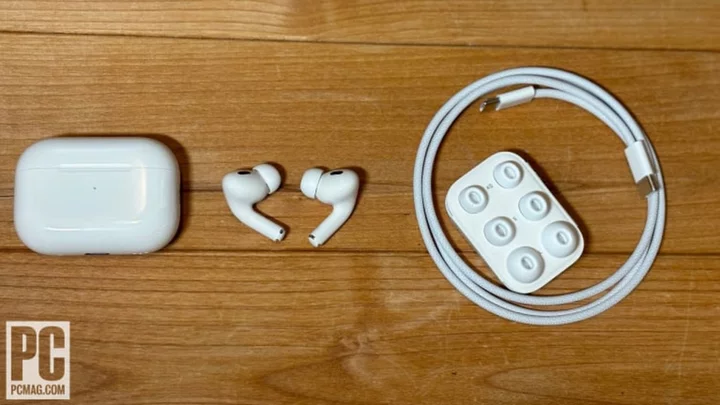
Apple Prepping AirPods Overhaul for 2024, But You'll Have to Wait for New Pros
Apple is reportedly planning to overhaul its AirPods lineup over the next two years, with
2023-10-27 07:17
